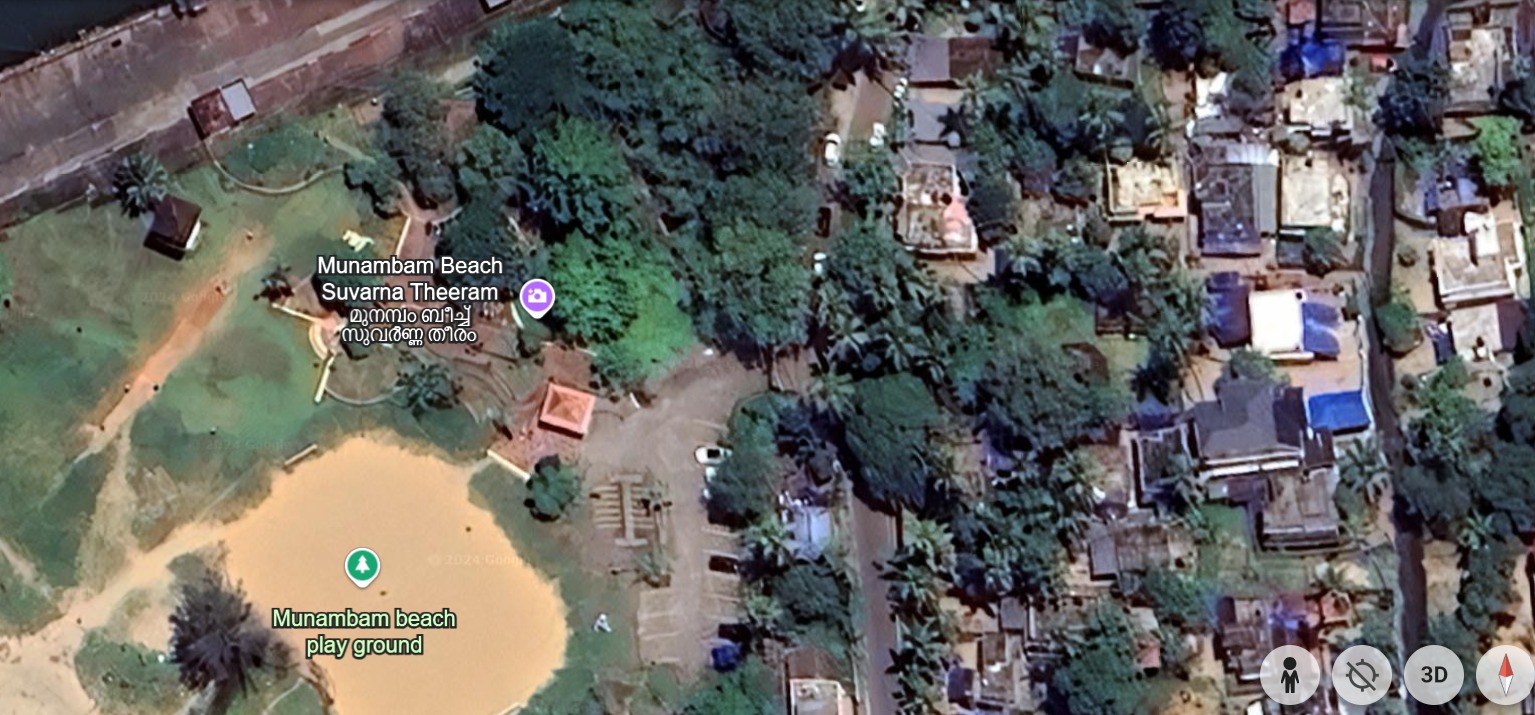Appointed in November 2024, the commission’s main task is to address the legal complexities of the Munambam land dispute and protect the rights of legitimate occupants, as stated by Law Minister P Rajeev
Published Feb 27, 2025 | 8:07 PM ⚊ Updated Feb 27, 2025 | 8:07 PM

A portion of Munambam land under dispute
Synopsis: The Kerala State Cabinet extended the judicial commission’s tenure by three months to investigate the Munambam land dispute. The commission, led by Justice CN Ramachandran Nair, was appointed in November 2024 to protect the rights of bona fide occupants. The dispute involves 610 families contesting the Kerala Waqf Board’s claim over the land.
In a move to further investigate the contentious Munambam land dispute, the State Cabinet on Thursday, 27 February, approved a three-month extension for the judicial commission, headed by former Kerala High Court Justice CN Ramachandran Nair.
The extension, effective from 27 February, 2025, allows the commission more time to complete its mandate, which includes recommending a permanent solution to the ongoing issue.
Originally appointed in November 2024, the commission’s primary task was to examine the legal complexities surrounding the Munambam land and determine steps to protect the rights of bona fide occupants.
Law Minister P Rajeev previously stated that the commission would focus on safeguarding the interests of those who have legitimately occupied the land.
The commission was initially given three months to submit its report, but the extension signals that additional time is required to finalise its findings.
The Munambam land dispute has sparked significant unrest, with 610 families contesting the Kerala Waqf Board’s claim over the land.
The board alleges that the land was donated in 1950 to Kozhikode’s Farook College, a claim that could potentially strip the families of their homes and rights to the property they’ve lived on for generations.
The dispute centres on a 404.76-acre plot in the coastal village of Munambam, a suburb of Kochi, which is now at the heart of a legal and political battle.
The Waqf Board’s claim, if upheld, would designate the land as Waqf property, a category under Islamic law that prevents the sale or transfer of land but allows its income to be used for charitable purposes.
However, the announcement of this claim in 2019 led to widespread protests from the residents of Munambam Kadappuram and Beach wards, who have long inhabited the area.
The origins of the dispute date back to 1950, when local philanthropist and affluent Muslim trader Siddique Sait made a charitable donation intended for Farook College.
The Waqf Board asserts that this donation renders the land Waqf property, a claim that remained dormant for decades. During this time, many non-Muslim families bought, built homes, and established businesses on the land.
These families have held property deeds and paid land taxes consistently until 2019, when the Waqf Board publicly asserted its ownership.
Since then, residents have found themselves caught in a legal and administrative limbo. Tax collection for the affected properties was suspended in 2022 amid the ongoing legal disputes, further complicating the situation for families who are now struggling to maintain their livelihoods.
(Edited by Ananya Rao with inputs from Dileep V Kumar)
